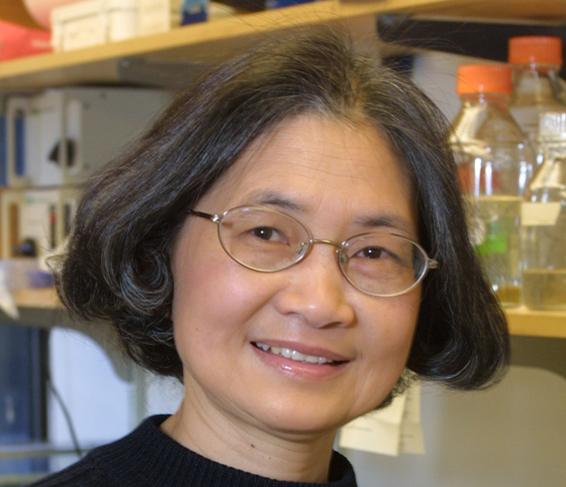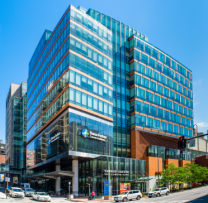Regulated Alternative Splicing and Mitotic Function of Protein 4.1R
In eukaryotic cells, alternative pre-messenger RNA splicing alone or coupled with transcription regulation is used to generate different mRNAs that encode multiple protein isoforms from a single gene. The choices in alternative splicing patterns are often tissue-specific or developmentally regulated and can profoundly affect the activity of the encoded protein. Our laboratory focuses on the molecular events involved in regulating the production of human protein 4.1R isoforms as well as the function of the 135 kD 4.1R in cell division. Protein 4.1R is an 80 kD structural component of the red blood cell cytoskeleton. It is critical for the formation of the spectrin-actin/4.1R junctional complex, whose integrity is important for mechanical stability and elasticity of red cells. Two major differentiation and stage-specific splicing events - exon 2-prime exclusion and exon 16 inclusion - lead to production of the 80 kD spectrin-actin binding isoform in erythroblasts. Our studies of the molecular basis for regulated splicing of exon 16 during erythroid differentiation has revealed critical cis-elements within and surrounding exon 16 and identified trans-acting factors that interact with these elements. Furthermore, we have characterized a coordinated transcription and splicing event that occurs in the upstream region of 4.1R and leads to exon 2-prime exclusion during late erythroid differentiation. We will continue to delineate the mechanisms governing these regulated pathways.We have also identified a 135 kD 4.1R isoform, generated from an alternative promoter coupled with inclusion of exon 2-prime, which is predominantly expressed in early erythroid progenitors and in nonerythroid cells. We showed that this particular 4.1R isoform appears to be an important component of the mitotic apparatus; its depletion affects normal cell division. Our efforts to delineate the role of 4.1R in mitosis could enhance understanding of the relationship between the mitotic machinery and the maintenance of normal cell proliferation.



